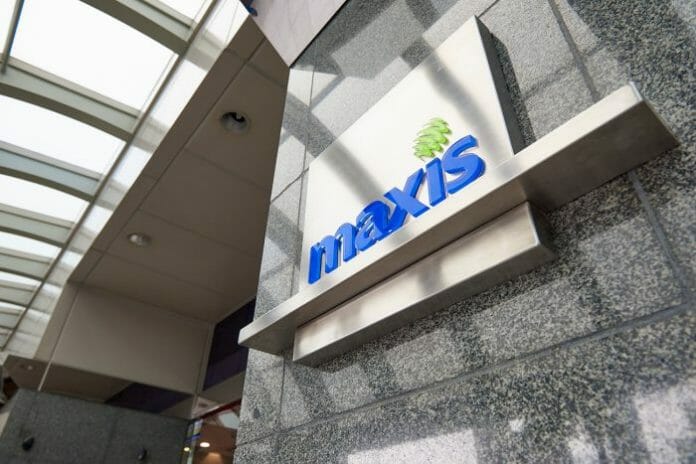Maxis Berhad (MAXIS) is redefining its strategy for the enterprise business by pivoting to SMEs. This is mainly due to shorter turnaround time for deal origination and execution.
Hence, MAXIS is able to scale up faster to establish a stable base of recurring enterprise earnings.
Kenanga Investment Bank (Kenanga), in a Company Update today (May 2) maintains their forecasts, TP of RM5.30 and OUTPERFORM call.
Redefined enterprise strategy. Kenanga understands that MAXIS is redefining its strategy for the enterprise business. In the near to medium-term, it will focus on offering managed solutions for SMEs (Small and Medium Enterprises) looking to outsource management of their IT systems and infrastructure.
This includes, amongst others, the provision of cloud services (e.g. Amazon Web Services), bundled office productivity suites (e.g. Microsoft 365) and cybersecurity products.
Pivot to SMEs. In tandem with its renewed focus, MAXIS recently inked a memorandum of understanding with PBBANK to promote digital adoption among Malaysian SMEs. As the official telco and digital partner for PBBANK’s PB enterprise Digital SME Assist Programme, the bank’s SME customers may access various MAXIS services (eg. internet, payments, e-commerce, cloud and cybersecurity).
In addition, MAXIS will also assist the customers to apply for Geran Digital PMKS Madani grant and explore additional financial solutions from PBBANK.
SME accounts will anchor earnings. The decision to pivot into SMEs is mainly due to shorter turnaround times for deal origination and execution. Therefore, new SME accounts will enable MAXIS to scale up faster to establish a stable base of recurring income. In contrast, deals with large enterprises require an extended gestation period (typically 12 months) due to lengthy processes for approvals, customization, systems migration (if there are existing providers), and implementation etc.
Large enterprise contracts will be a bonus. Nevertheless, MAXIS will concurrently pursue contracts from government agencies, large corporates and industries. In particular, key industry sectors identified by MAXIS as potential clients include financial services, plantations and logistics. Hence, the group will not miss out on chunky contracts from large enterprises that will provide the occasional boost to earnings.
Enterprise could drive growth. On the back of this refreshed strategy, MAXIS is optimistic of improved earnings from the enterprise segment. Furthermore, this is reinforced by recent initiatives to improve operations (e.g. streamlined processes and staff optimisation). To recap, in FY23, segmental revenue for enterprise fixed & solutions jumped by 10% YoY. Whilst it is still early days for this strategy, we believe that MAXIS’ FY24 earnings growth will be driven by: (i) cost savings from MAXIS’ staff optimization exercise in 3QFY24 (RM50m), (ii) full year contribution from provisionof 4G MOCN (multi-operator core network) and 2G domestic roaming services to TM (RM128m), and (iii) service revenue growth of 8% YoY.
Expect robust FY24 despite 5G fees. The above is expected to more than offset a slight drag from full-year 5G access fees to Digital Nasional Berhad (DNB). Recall that based on MAXIS’ access agreement with DNB, it is required to purchase a minimum capacity of 1,000 Gbps after the network reaches 80% population coverage.
At the base rate of RM30,000 per Gbps/month, this implies up to RM360m p.a. in total access payments. Following the commencement of this agreement in 3QFY23, Kenanga estimate that actual billings from DNB amounted to less than RM50m in 2HFY23.
Moving forward for FY24, Kenanga postulates that the fees could be slightly higher at circa RM150m-RM170m. This is underpinned by their assumption that actual capacity offtake would be higher YoY but lower than 1,000 Gbps as widely expected.
Forecasts. Maintained.
Valuations. Kenanga also maintained their TP of RM5.30 which is based on unchanged 12x FY24 EV/EBITDA. There is no adjustment to our TP based on ESG given a 3-star rating as appraised by them.
Investment case. Kenanga continues to like MAXIS due to: (i) its sustained subscriber momentum in the postpaid and fixed broadband segments on the back of its convergence proposition, (ii) its ongoing 3-year cost optimization exercise that may potentially uplift margins, and (iii) expectation of a ramp-up in 5G monetization as enterprise clients intensify digitalization measures.
Risks to Kenanga’s call include: (i) unfavourable outcome from implementation of the 5Gdual network model, (ii) loss of competitive edge due to excessive cut in resources from cost optimization, and (iii)large enterprise customers are slow to upgrade to 5G due to hefty technology investments.









